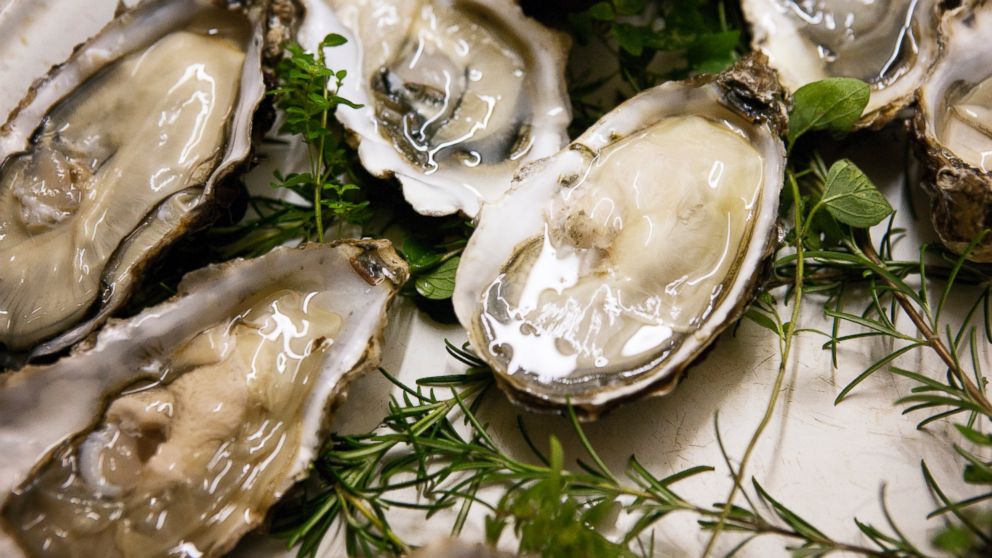The Most Dangerous Summer Foods
Without safe food prep, outdoor eating can lead to foodborne illness.

— -- intro: Who doesn't love picnics and barbecues? Thing is, if you don't practice safe food preparation, outdoor eating can also set the stage for foodborne illness. Every year approximately 1 in 6 Americans gets sick, and 128,000 are hospitalized from food-borne diseases, according to the CDC. Among 31 known pathogens, most deaths occur from Salmonella, Toxoplasma, Listeria, and norovirus. "The rule of thumb is that no food should be left out for four total hours," says Amy Goodson, RD, a dietitian at Ben Hogan Sports Medicine in Fort Worth, Texas. "This refers to not just four hours at a time, but four accumulated hours." The following foods are most likely to ruin your good time.
16 Biggest Summer Health Hazards
quicklist: 1category: The Most Dangerous Summer Foodstitle: Burgersurl:text: Undercooked meat puts you at risk for potentially life-threatening illness from a subtype of E. coli bacteria called O157:H7. An outbreak in 2014 linked to ground beef contaminated with this type of E. coli sickened 12 people from four different states. "Your risk largely depends on the number of cows making up your ground beef," says Michael Schmidt, PhD, professor at the department of microbiology and immunology at the Medical University of South Carolina (MUSC). "The greater the number of cows the greater chance of having something that was not intended to be in the meat." Ground beef is riskier than specific cuts of meat that come from a single cow. Regardless, cook burgers or any beef to an internal temperature of at least 160 degrees to kill E. coli.
quicklist: 2category: The Most Dangerous Summer Foodstitle: Sproutsurl:text: Topping your burger with a handful of raw sprouts could set the stage for food poisoning. Seeds and beans need warm and humid conditions to grow, which also happen to be ideal conditions for the growth of bacteria, including Salmonella, Listeria, and E. coli. Even homegrown sprouts grown under sanitary conditions can produce harmful bacteria because seeds have been known to be contaminated. "If you are putting sprouts in a salad or on a sandwich/burger, consider sauteing them first," says Goodson. "Sprouts can easily harbor bacteria and when that is mixed with moisture, food poisoning risk multiplies."
17 Easy Ways to Burn Calories This Summer
quicklist: 3category: The Most Dangerous Summer Foodstitle: Caesar Dressingurl:text: Eating a Caesar salad can make you sick if the dressing is made the traditional way—with raw eggs. (Store-bought bottled dressing is pasteurized; it's homemade dressing you need to watch out for.) "Pay close attention to anything that could be made with raw or undercooked eggs, especially if they are not pasteurized," says Lori Zanini, RD, a Los Angeles-based dietitian. The Food and Drug Administration recommends cooking eggs thoroughly and washing all equipment that comes in contact with eggs and your hands with hot soapy water.
quicklist: 4category: The Most Dangerous Summer Foodstitle: Leafy Green Saladsurl:text: Once you know the dressing's safe, you also want to consider the lettuce itself—and the hygiene habits of the person who prepared it. A CDC report revealed that salad greens—such as lettuce, escarole, endive, spinach, cabbage, kale, arugula, and chard—caused 262 outbreaks involving 8,836 reported cases of foodborne illness between 1998 and 2008. There are a few ways greens can be contaminated: at the farm by manure or dirty water rinses; when a sick person preps a salad without washing their hands; and by cross-contamination at home (for example, by using the same cutting board for raw meat and salad prep, which spreads bacteria from meat to produce.) Wash greens before eating by placing them in a large colander and tossing them under your faucet, or by using a salad spinner.
12 Signs You Suffer from Summer Depression
quicklist: 5category: The Most Dangerous Summer Foodstitle: Oystersurl:text: If a summertime trip to the shore always includes a stop at a raw oyster bar, consume with caution: Vibrio parahaemolyticus and Vibrio vulnificus can both can be contracted by eating raw shellfish, especially oysters. In fact, the CDC reported a 52% increase in Vibrio poisonings between 2011 and 2013. Both of these bacteria cause diarrhea, vomiting, and abdominal pain in healthy people. For people with liver disease, diabetes, cancer, stomach disorders, or any other condition that affects the immune system, Vibrio vulnificus is extremely dangerous: it can invade the bloodstream, causing a life-threatening illness. Half of all Vibrio vulnificus bloodstream infections are fatal.
Read the rest of this story on Health.com.




